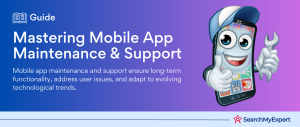Native apps are software applications developed specifically for a particular platform or device, like iOS or Android. Unlike web apps or hybrid apps that run in a web browser, native apps are downloaded from app stores and installed directly onto devices.
Brief Overview of Their Popularity and Usage
With the rise of smartphones and tablets, native apps have become increasingly popular. Their ability to provide a seamless user experience, optimized for specific devices, has made them a preferred choice for many developers and businesses.
Advantages of Native Apps
Performance and Speed
Native apps are known for their superior performance. Since they are built for specific platforms, they can be optimized to run faster and more efficiently on those platforms.
Access to Device Features
Native apps have direct access to device hardware and features, such as the camera, GPS, and accelerometer. This allows for a richer user experience and more advanced app functionalities.
User Experience and Interface Design
With the ability to design specifically for a device, native apps can provide an intuitive and immersive user experience. They can adhere to platform-specific design guidelines, ensuring consistency and familiarity for users.
Drawbacks of Native Apps
Development Cost and Time
Developing a native app for multiple platforms requires separate codebases. This can increase development time and costs, especially if you want your app available on both iOS and Android.
Platform Dependency
Once developed for a specific platform, any updates or changes need to be made separately for each platform. This can be time-consuming and can lead to inconsistencies across versions.
Maintenance Challenges
Maintaining a native app requires regular updates to keep up with operating system updates and changes. This can be resource-intensive and requires ongoing commitment.
Here Is The Graph Showing Advantages And Drawbacks Of Native Apps

Development Process of Native Apps
Choice of Programming Language
Depending on the platform, native apps require different programming languages. For iOS, Swift or Objective-C is used, while for Android, Java or Kotlin is preferred.
Platform-Specific Development Tools
Each platform offers its own development tools. Xcode for iOS and Android Studio for Android are the most popular.
Testing and Quality Assurance
Testing native apps can be more complex due to the need to test on multiple devices and versions. Tools like TestFlight for iOS and Firebase Test Lab for Android can assist in this process.
Case Studies
Success Stories of Popular Native Apps
Apps like Instagram and Snapchat are prime examples of successful native apps. Their smooth performance and platform-specific features have contributed to their massive success.
Challenges and Failures in Native App Development
Not all native apps succeed. Some face challenges due to poor market research, lack of updates, or platform-specific issues.
Comparison with Alternative App Types
Web Apps
Web apps run in browsers and are not platform-specific. They are easier to maintain but may not offer the same performance or access to device features as native apps.
Hybrid Apps
Hybrid apps combine elements of both web and native apps. They can be developed faster and for multiple platforms but might compromise on performance.
Progressive Web Apps
PWAs offer an app-like experience in a browser. They can be installed on devices and offer some offline functionalities but might not have full access to device features.
Here Is The Table Showing a Comparison of Native Apps
| Feature/Type | Native Apps | Web Apps | Hybrid Apps | PWAs |
|---|---|---|---|---|
| Platform Specific | Yes | No | Partially | No |
| Access to Device Features | Full | Limited | Moderate | Some |
| Performance | High | Moderate | Moderate | Good |
| Development Cost | High | Low | Moderate | Low |
| Offline Capabilities | Yes | No | Yes | Yes |
Conclusion and Future Trends
Summary of Key Points
Native apps, with their advantages and drawbacks, remain a significant player in the app development world. Their unmatched performance and user experience make them a preferred choice for many.
Emerging Technologies and Their Impact on Native App Development
Technologies like AR, VR, and AI are increasingly being integrated into native apps, offering more advanced features and functionalities.
Future Prospects and Challenges
As technology evolves, native apps will need to adapt. The rise of cross-platform tools and changing user preferences will shape the future of native app development.
Unearth the gold standard of App Development Companies.
Table of Contents
Toggle






